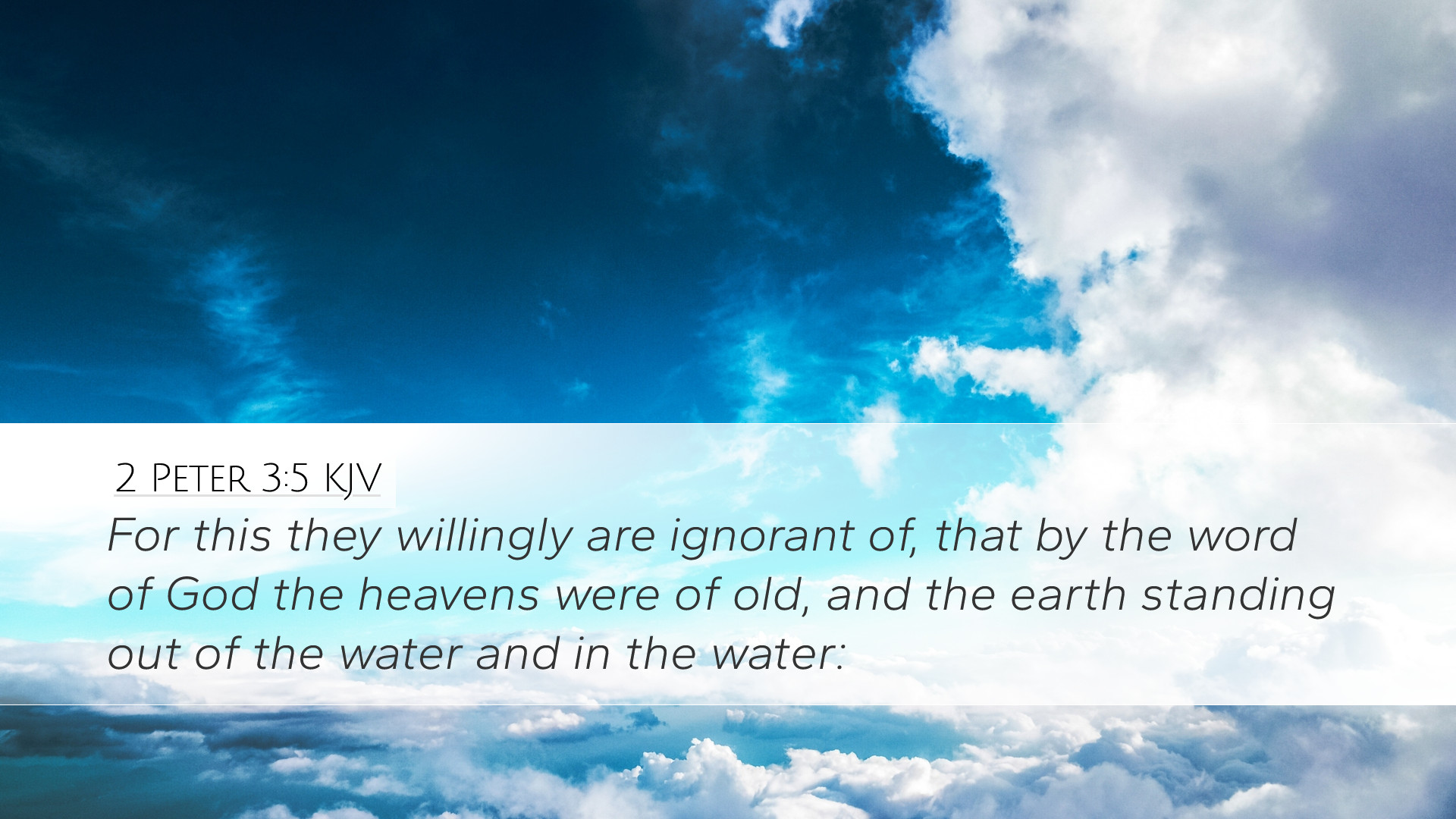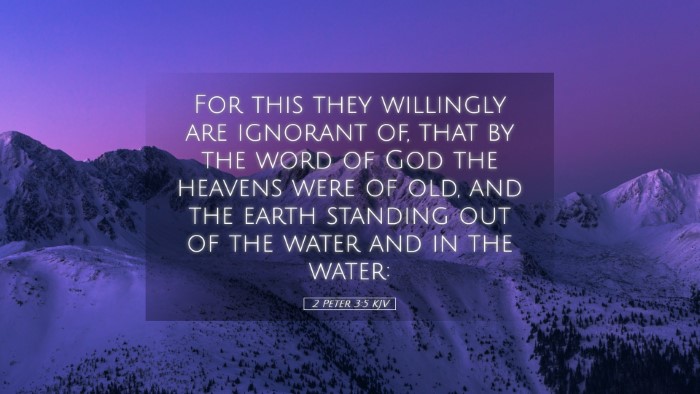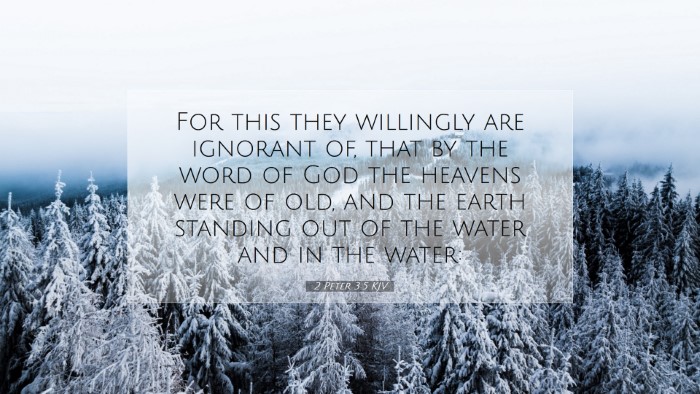Old Testament
Genesis Exodus Leviticus Numbers Deuteronomy Joshua Judges Ruth 1 Samuel 2 Samuel 1 Kings 2 Kings 1 Chronicles 2 Chronicles Ezra Nehemiah Esther Job Psalms Proverbs Ecclesiastes Song of Solomon Isaiah Jeremiah Lamentations Ezekiel Daniel Hosea Joel Amos Obadiah Jonah Micah Nahum Habakkuk Zephaniah Haggai Zechariah Malachi2 Peter 3:5
2 Peter 3:5 KJV
For this they willingly are ignorant of, that by the word of God the heavens were of old, and the earth standing out of the water and in the water:
2 Peter 3:5 Bible Commentary
Commentary on 2 Peter 3:5
Verse Text: "For this they willingly are ignorant of, that by the word of God the heavens were of old, and the earth standing out of the water and in the water."
Introduction
The epistle of 2 Peter serves as a vital warning against the false teachings and scoffers of its time. Chapter 3 accentuates the importance of understanding divine intervention in the cosmos through the Creator’s word. Verse 5 specifically addresses the ignorance and willful denial of the historical acts of God. In this commentary, we will extract insights from renowned public domain commentaries to illuminate the richness of this verse.
Contextual Background
In this letter, Peter writes to combat rising skepticism regarding Christ’s promise of His return. The apostle remarks that scoffers deliberately overlook the truth of God’s creative power. Matthew Henry stresses that such ignorance is not due to a lack of evidence but stems from a willful rejection of God’s revealed word.
Analysis of Key Phrases
- “Willingly are ignorant of”: This phrase indicates a conscious choice to ignore the truths presented by God. Albert Barnes notes that this ignorance is a moral failing rather than just a lack of understanding. It emphasizes the deliberate refusal to acknowledge God’s creative authority, reflecting a broader trend among the scoffers.
- “By the word of God”: The power of God’s word is central to creation. Adam Clarke interprets this as a reminder that everything that exists is sustained by God’s command. This affirms the doctrine of creation ex nihilo, highlighting that the universe is not merely a product of chance but a deliberate act of the sovereign Creator.
- “The heavens were of old”: This phrase connects to the eternal nature of God. Matthew Henry points out that the creation of the heavens predates human history, illustrating God's authority over time and space. It calls into question the temporal perspective of those who deny God's sovereign action.
- “The earth standing out of the water and in the water”: The imagery here is striking. Both Henry and Clarke elaborate on the idea that God established the earth amidst the chaotic waters, a reflection of His order amidst chaos. The creation narrative underscores God’s ability to bring forth life and order from the depths of the formless void. Clarke notes that this also foreshadows the judgment through water, namely the flood, which is significant in the subsequent verses.
Theological Implications
This verse emphasizes core theological themes that resonate throughout Scripture:
- The Majesty of God: The very act of creation sets God apart, demonstrating His omnipotence. As Clarke notes, recognizing God’s sovereignty in creation fosters a proper understanding of His authority over all things.
- The Nature of Truth and Ignorance: The willful ignorance described in this verse highlights the ethical implications of rejecting divine truth. Barnes notes that it is a contemporary issue where modern skepticism often downplays historical biblical events.
- God’s Faithfulness: 2 Peter 3:5 serves as a reminder of God’s faithfulness to His word. Both Henry and Barnes reflect on how believers can trust in the promises of God, especially regarding His return and the final judgment.
Conclusion
Overall, 2 Peter 3:5 challenges both the intellectual and moral dimensions of belief. The deliberate ignorance of the scoffers serves as a cautionary tale for today’s believers. Understanding the significance of God’s creative acts not only informs our theology but also influences our daily living and faithfulness to God’s word.
This verse, thus, invites pastors, theologians, and students of the Word to dig deeper into the foundations of our faith, recognizing the power of God’s word and the importance of remaining steadfast against skepticism.


